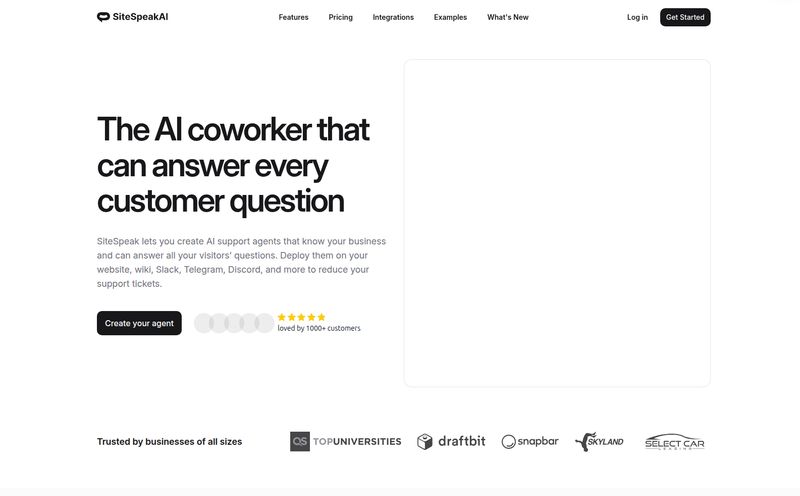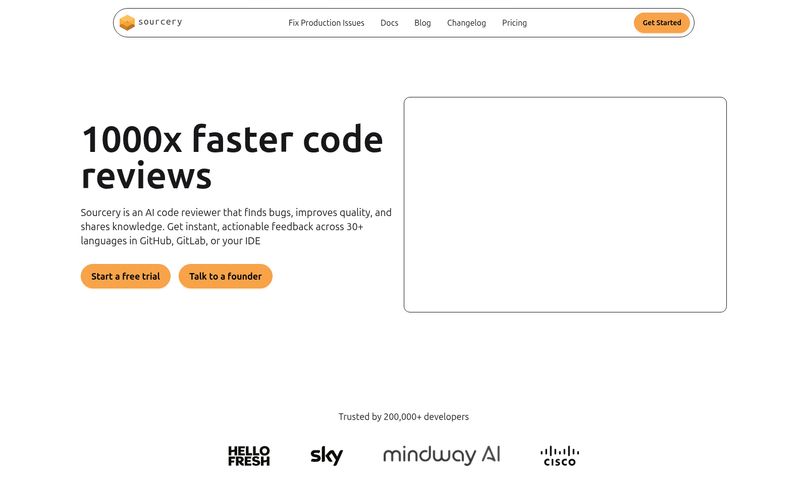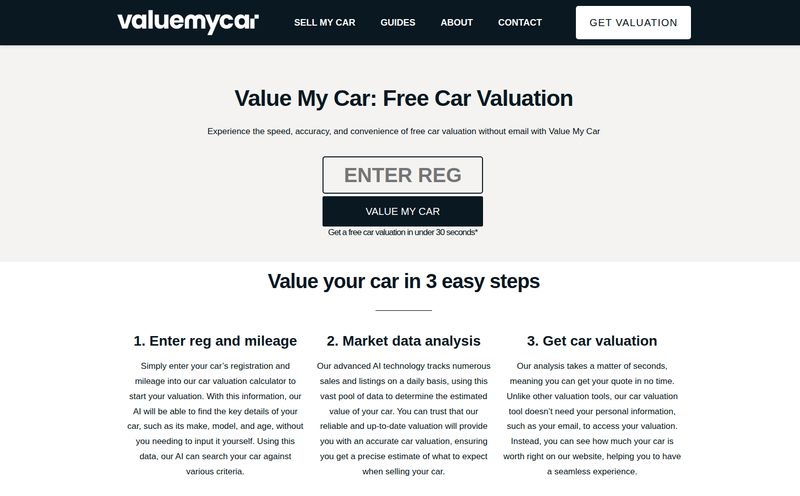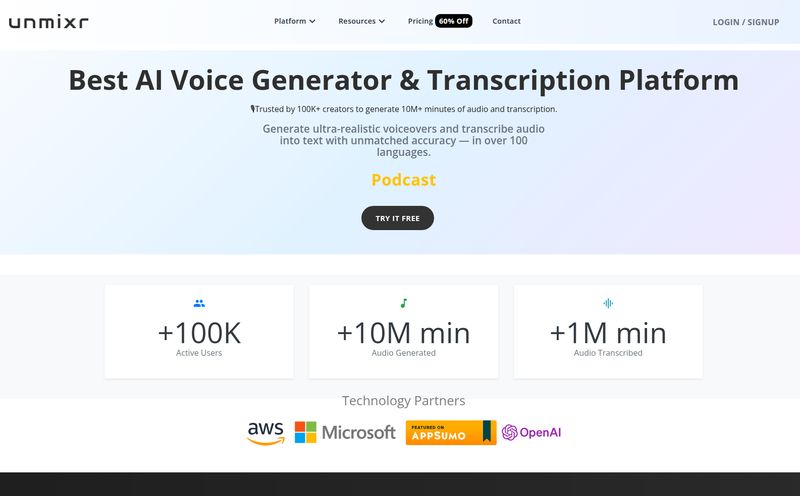Nobody likes dealing with collections. It’s an awkward, time-consuming, and often frustrating part of running a business. For years, the options were pretty grim: either chase down late payments yourself, burning precious hours, or hand it over to a traditional collection agency that takes a huge cut and might just alienate your customers for good. It’s a classic lose-lose scenario.
I’ve been in the digital marketing and operations space for years, and I’ve seen automation transform just about every other department—from marketing to HR. So, I’ve always wondered, when is accounts receivable getting its modern-tech makeover? Well, it looks like that day is finally here. I stumbled upon a platform called FinanceOps, and the claims it makes are pretty bold: AI-driven collections that work while you sleep, slashing overheads by 30-60%.
Sound too good to be true? I thought so too. So, I did what I do best: I took a deep look. Let’s see if this thing is the real deal.
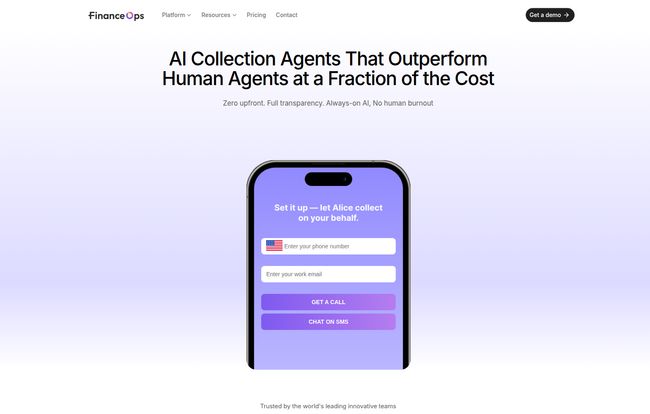
Visit FinanceOps
So What is FinanceOps, Really?
At its core, FinanceOps is an AI-powered platform designed to automate the collections process through digital channels. But don't just picture a dumb chatbot spamming people with "PAY NOW" messages. That's not it at all. Think of it more like a super-smart, 24/7 financial specialist who also happens to have a degree in behavioral science.
Instead of just blindly contacting everyone on a list, its AI first assesses the situation. It looks at the data, verifies the claim, and even pulls in third-party data to figure out the actual likelihood of collecting. Then, it tailors the approach. It's not a one-size-fits-all sledgehammer; it's a set of precision tools. It figures out the best way to talk to each customer, personalizing the interaction to get a resolution without all the friction and hostility.
The Old Way vs. The FinanceOps Way
Think about the typical collection process. It usually involves manual calls, endless spreadsheets, and a ton of guesswork. It’s reactive. You wait until an account is 30, 60, or 90 days past due, and then you start the tedious chase. The whole thing is built on manual effort, which is expensive and doesn't scale well.
FinanceOps flips that model on its head. It’s a proactive, automated system. It integrates with your existing ERP—I saw names like Blackline and Kenset on their site—and gets to work immediately. It sends the right message at the right time, handles responses via SMS, and can even process payments, all without a human lifting a finger. It handles the high-volume, low-balance accounts that pile up and drain your team’s energy, freeing up your people to handle the truly complex cases that require a human touch.
Key Features That Actually Matter
Okay, so “AI-driven” is a great buzzword, but what does it actually do? I poked around and a few things really stood out to me as genuinely useful, not just marketing fluff.
AI Automation That Doesn't Clock Out
The main engine is, of course, the automation. The platform uses a chatbot to manage communications 24/7. This isn’t just a gimmick. We all know people are more likely to deal with an uncomfortable task like a late bill outside of normal 9-5 business hours. Giving them a way to sort it out at 10 PM on a Tuesday via SMS is just… smart. It meets them where they are and lowers the barrier to payment.
Smart Data and Behavioral Science Insights
This is the part that gets the inner geek in me excited. FinanceOps doesn't just automate; it optimizes. By analyzing data and applying principles of behavioral science, it customizes its outreach. Does this person respond better to a gentle reminder or a more direct notification? What’s the optimal time of day to reach out? The system learns and adapts. This is miles ahead of a human agent just working their way down a call list. It's about working smarter, not just harder.
Compliance is Baked In, Not Bolted On
If you're in any industry that deals with debt, you know compliance is a minefield. The FDCPA, CPA, CCPA—it’s a veritable alphabet soup of regulations you absolutely cannot mess up. I was relieved to see FinanceOps emphasizes that its solution is fully compliant and secure. Automating this helps reduce the risk of human error, which can lead to costly legal trouble. It’s a huge weight off a business owner's shoulders.
Autopilot vs. Copilot: Which Plan Fits?
FinanceOps isn’t a one-size-fits-all solution, which I appreciate. They offer two distinct plans based on your team’s needs.
| Feature | Autopilot | Copilot |
|---|---|---|
| Best For | Fully automated, hands-off collections. | Augmenting an existing in-house collections team. |
| Core Function | Handles the entire process from outreach to payment. Includes skip tracing, settlement analytics, etc. | Provides tools like a workflow builder, call transcripts, team management, and live agent coaching. |
| Pricing Model | Performance-based. | Custom (Contact Sales). |
The Autopilot plan seems to be their flagship offering. It’s for businesses that want to set it and forget it. The Copilot plan, on the other hand, is designed for companies that already have a collections team but want to equip them with better tools—kind of like giving your pilots an upgraded navigation and analytics system.
The Big Question: What Does FinanceOps Cost?
Alright, let's talk money. This is often where great-sounding tech falls apart. But FinanceOps has a pricing model for its Autopilot plan that immediately got my attention: Start for free. Pay only if we collect.
Specifically, the rate shown is 1.50% of collections. In my experience, any tool that charges based on performance has more skin in the game. They don't make money unless you make money. This aligns their goals with yours perfectly. Compared to the 20-50% fees traditional agencies can charge, a low single-digit percentage is incredibly disruptive. It means you keep the vast majority of what you recover. For small businesses or those in healthcare with lots of low-balance accounts, this could be a total game-changer.
But Is It Perfect? A Few Things to Consider
No tool is a magic wand, and it’s important to be realistic. Based on the information, there are a couple of things to keep in mind. First, it requires integration with your existing ERP system. This is a good thing for seamless data flow, but it does mean there’s an initial setup phase. It's not just plug-and-play in five minutes. You’ll need to plan for that configuration.
Second, while the AI is smart, it’s not sentient. You’ll still want to monitor its performance and make adjustments. This is true for any automation platform, wether it's for marketing, sales, or finance. You need to keep an eye on the results and fine-tune the strategy. It's a powerful tool, not a replacement for human oversight.
So, Who Should Use FinanceOps?
This platform seems like a fantastic fit for any business tired of the traditional collections grind, especially in industries like:
- Healthcare: Managing countless small co-pays and patient balances.
- Small Businesses & Lenders: Where cash flow is king and every dollar counts.
- Fintech: Companies that are already digitally native and want a collections process that matches their tech stack.
- Credit Unions and Real Estate: Handling member dues, fees, or late rent in a more efficient, less confrontational way.
If you're spending too much time or money on collections and want a system that's more efficient, respectful, and cost-effective, FinanceOps is definitely worth a serious look.
Frequently Asked Questions
- How is FinanceOps different from a traditional collection agency?
- FinanceOps uses AI and digital automation rather than manual calls. Its pricing is a small percentage of what's collected (performance-based), whereas traditional agencies often charge very high contingency fees (20-50%). It focuses on a respectful, personalized digital experience.
- Is the FinanceOps platform secure and compliant?
- Yes, the platform states it is a fully compliant and secure solution, adhering to major US debt collection laws like the FDCPA, CPA, and CCPA. This focus on compliance helps reduce legal risks for your business.
- What does "pay only if we collect" mean for the Autopilot plan?
- It's a performance-based pricing model. You don't pay any subscription fees or upfront costs. FinanceOps only takes a small percentage (currently listed at 1.50%) of the money they successfully recover for you. If they don't collect anything, you don't pay anything.
- Can I still use my own team with FinanceOps?
- Absolutely. That's what the "Copilot" plan is for. It's designed to provide your in-house collections team with powerful tools like a workflow builder, advanced analytics, and live coaching to make them more effective.
- What kind of systems can FinanceOps integrate with?
- The platform is built to integrate with popular Enterprise Resource Planning (ERP) tools. The website shows logos for systems like SkyOne, Blackline, and Cherry, indicating it's designed to work with your existing financial software stack.
- What happens if a customer's issue is too complex for the chatbot?
- FinanceOps has a system for escalating more complex matters to live agents. The goal of the AI is to handle the majority of interactions, freeing up human agents to focus on the cases where they are truly needed.
My Final Thoughts
After looking at everything, I have to say I'm pretty impressed with what FinanceOps is bringing to the table. The collections industry has been ripe for disruption for a long, long time. The move toward a more humane, data-driven, and cost-effective model is not just welcome; it’s overdue.
The performance-based pricing is the clincher for me. It removes almost all the risk of trying it out. By focusing on automation for the routine tasks and saving human interaction for the complex ones, FinanceOps presents a seriously compelling case for being the future of accounts receivable management. It might just be the tool that finally makes collections less of a headache and more of a streamlined, efficient business process.
References and Sources
- FinanceOps Official Website - All features, pricing, and platform information were sourced directly from the company's public-facing website.
- Fair Debt Collection Practices Act (FDCPA) Text - For information on federal debt collection regulations.
